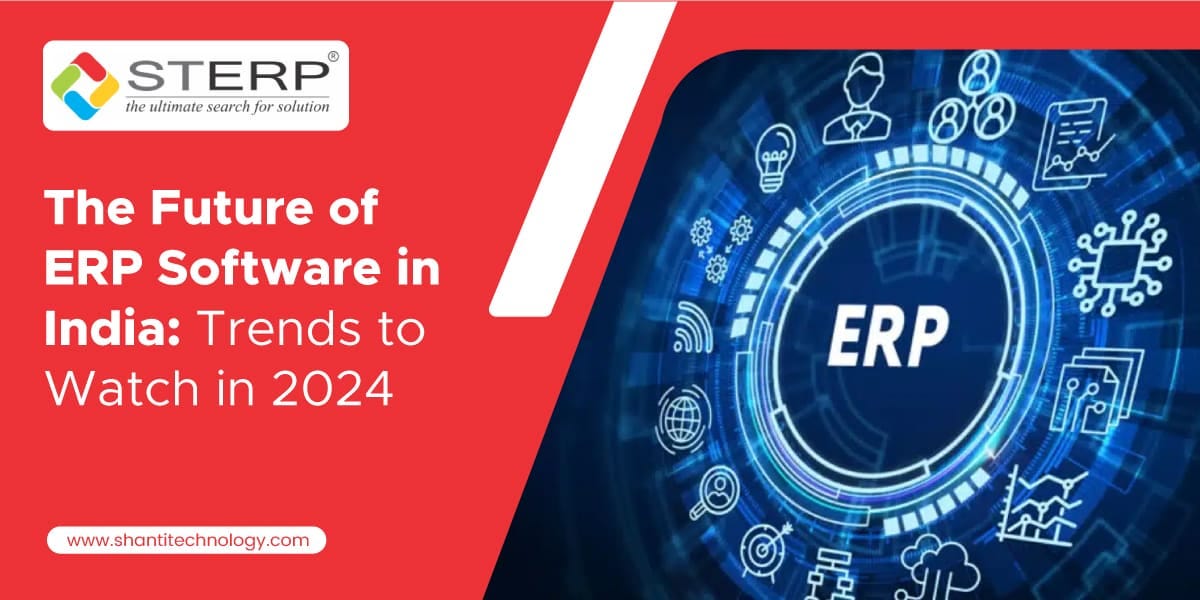Enterprise Resource Planning (ERP) software continues to be a vital tool for businesses, enabling them to integrate and manage core operations like finance, supply chain, human resources, and more through a centralized system. As businesses increasingly adopt digital transformation strategies, ERP software must evolve to meet the growing demands of a modern, tech-driven world. Looking ahead to 2024, several trends are expected to shape the future of ERP software, transforming how businesses operate and stay competitive. Here are the key trends to watch for:
1. Cloud ERP Dominance
Cloud-based ERP systems are rapidly becoming the preferred choice for businesses due to their flexibility, scalability, and cost-effectiveness. In 2024, the trend towards cloud ERP adoption is expected to accelerate further. Cloud ERP allows businesses to access real-time data from any location, scale their operations with ease, and reduce the need for heavy upfront investments in hardware and maintenance.
Why it matters: As remote work and global collaboration become the norm, cloud ERP ensures seamless integration across multiple locations and departments, offering enhanced agility for businesses.
2. AI and Machine Learning Integration
Artificial intelligence (AI) and machine learning (ML) are revolutionizing ERP systems by automating routine tasks, providing advanced data analytics, and improving decision-making. In 2024, AI-powered ERP solutions will further evolve, offering predictive analytics, process automation, and real-time insights.
Why it matters: AI and ML can help businesses anticipate trends, optimize workflows, and make data-driven decisions faster and more accurately, resulting in increased efficiency and reduced operational costs.
3. Personalized User Experience
The next wave of ERP systems will focus on providing a more personalized and intuitive user experience. Customizable dashboards, tailored workflows, and role-specific interfaces will enable users to interact with ERP systems more efficiently, focusing on the data and tools most relevant to their roles.
Why it matters: A personalized ERP interface enhances user satisfaction, reduces the learning curve, and improves productivity, allowing employees to access critical information more easily.
4. IoT and ERP Integration
The Internet of Things (IoT) is becoming increasingly intertwined with ERP systems. By 2024, we will see more businesses leveraging IoT devices to gather real-time data on their operations and assets. For example, manufacturers can track machinery performance, and logistics companies can monitor fleet operations directly from their ERP systems.
Why it matters: IoT integration with ERP provides businesses with real-time visibility into their operations, enabling better decision-making, predictive maintenance, and optimization of resources.
5. Enhanced Mobile ERP Solutions
Mobile accessibility is no longer just a nice-to-have feature—it’s a necessity. In 2024, ERP vendors will continue to enhance their mobile capabilities, allowing users to access and manage business processes on the go. This includes mobile dashboards, real-time reporting, and workflow approvals from smartphones or tablets.
Why it matters: With a growing mobile workforce, businesses need ERP systems that provide real-time access to data and processes, regardless of location. Enhanced mobile ERP solutions empower employees to make timely decisions from anywhere, increasing overall productivity.
6. Modular and Composable ERP
Traditional ERP systems often come as monolithic solutions, where implementing changes or upgrades can be costly and time-consuming. In 2024, modular ERP will gain more traction, allowing businesses to implement only the modules they need and expand functionality over time. Composable ERP takes this a step further by offering customizable, flexible systems that can be adapted to specific business needs.
Why it matters: Modular and composable ERP solutions offer businesses greater flexibility, lower implementation costs, and the ability to evolve with changing business requirements.
7. Focus on Data Security and Privacy
As businesses become more dependent on digital tools and cloud-based ERP systems, data security and privacy concerns will intensify. In 2024, ERP vendors will place a stronger emphasis on building robust security features, including encryption, access controls, and compliance with evolving data protection regulations like GDPR.
Why it matters: As cyber threats grow, businesses must ensure that sensitive information is protected within their ERP systems. Enhanced security measures will safeguard company data, maintain compliance, and build customer trust.
8. ERP for Sustainability and ESG Goals
Sustainability and environmental, social, and governance (ESG) initiatives are becoming critical components of business strategies. ERP systems are expected to play a more significant role in helping businesses track and manage sustainability efforts by offering tools to measure carbon footprints, manage supply chain transparency, and track ESG metrics.
Why it matters: As regulations and consumer demands for sustainable practices grow, businesses need ERP systems that help them achieve and report on their sustainability and ESG goals.
9. Increased Focus on SMBs
While ERP systems have traditionally been associated with large enterprises, there is growing demand among small and medium-sized businesses (SMBs) for affordable, scalable ERP solutions. In 2024, ERP vendors will focus more on developing cost-effective, easy-to-implement ERP solutions tailored to the unique needs of SMBs.
Why it matters: By making ERP systems more accessible to SMBs, businesses of all sizes can benefit from streamlined processes, improved decision-making, and enhanced competitiveness.
10. ERP as a Service (ERPaaS)
ERP as a Service (ERPaaS) will continue to grow in popularity, offering businesses a more flexible subscription-based model for accessing ERP software. This model allows companies to scale their ERP usage as needed and pay only for the services they use.
Why it matters: ERPaaS provides greater cost control, reduced upfront investment, and easier access to the latest software updates and features, making ERP systems more attractive to businesses with varying needs and budgets.
Conclusion
As we move into 2024, ERP software will continue to evolve, driven by emerging technologies like AI, IoT, and cloud computing. Businesses that embrace these trends will be better equipped to optimize their operations, stay competitive, and meet the demands of a rapidly changing market. Whether you’re a large enterprise or an SMB, staying ahead of these ERP trends will be essential for achieving long-term success in the digital age.
